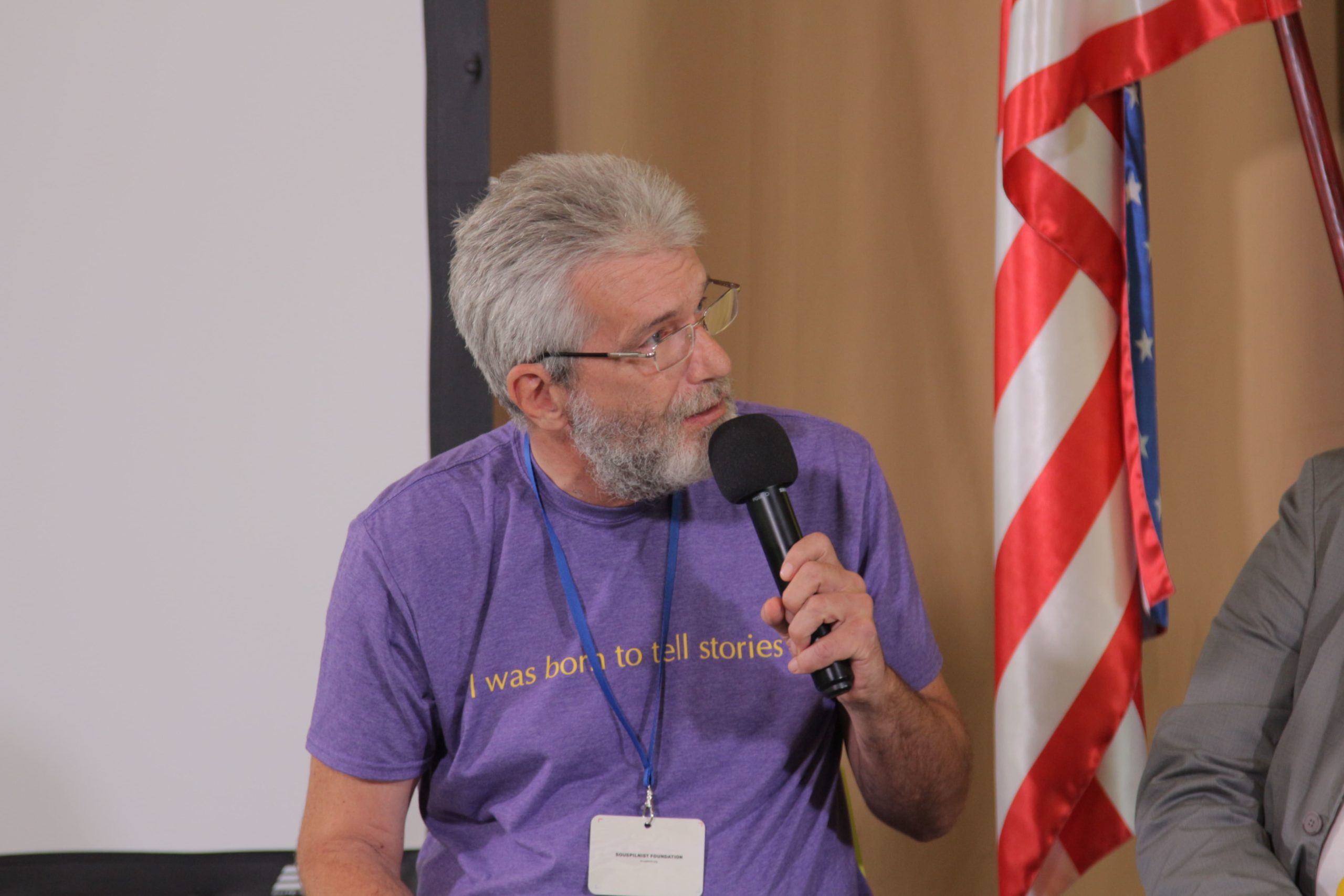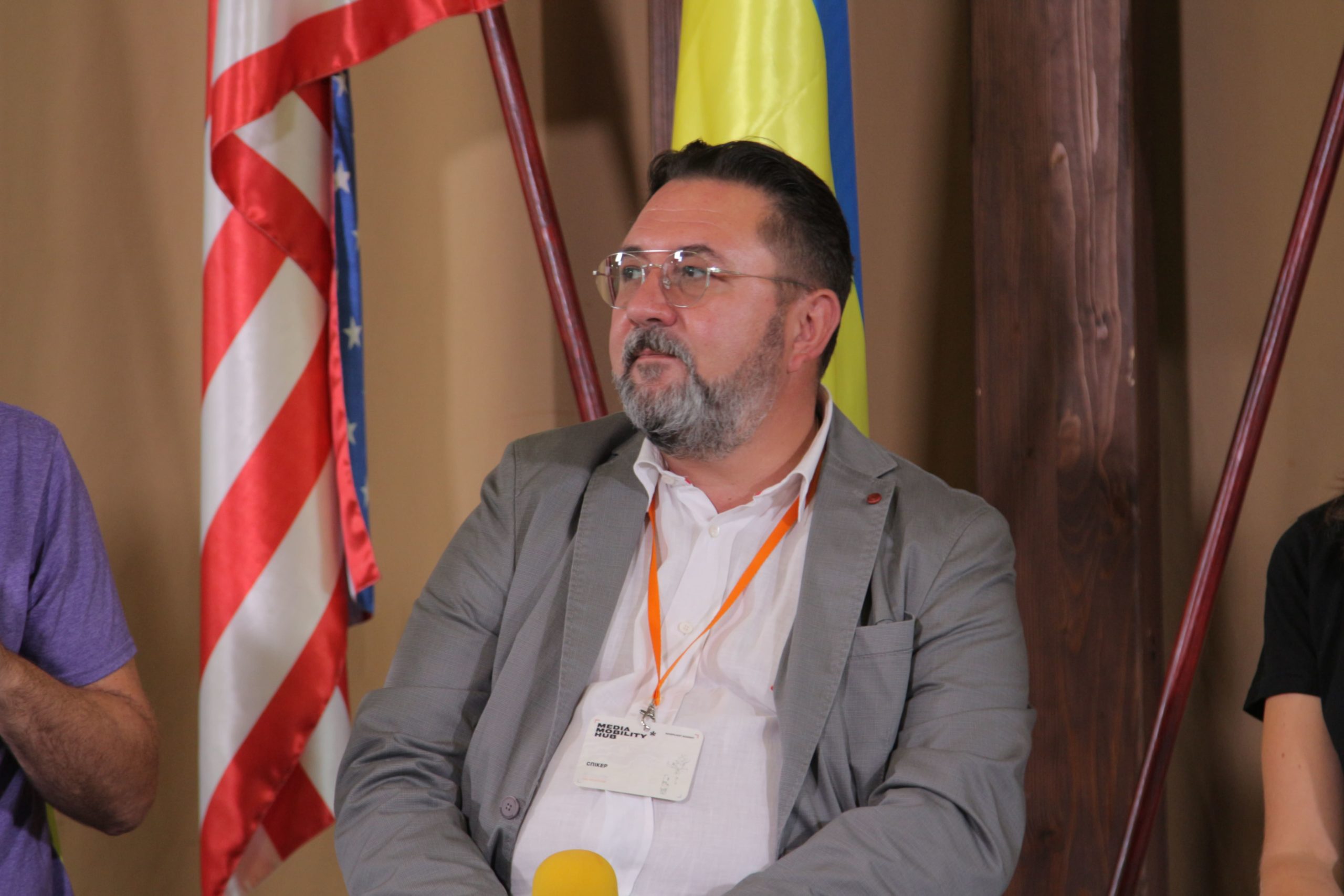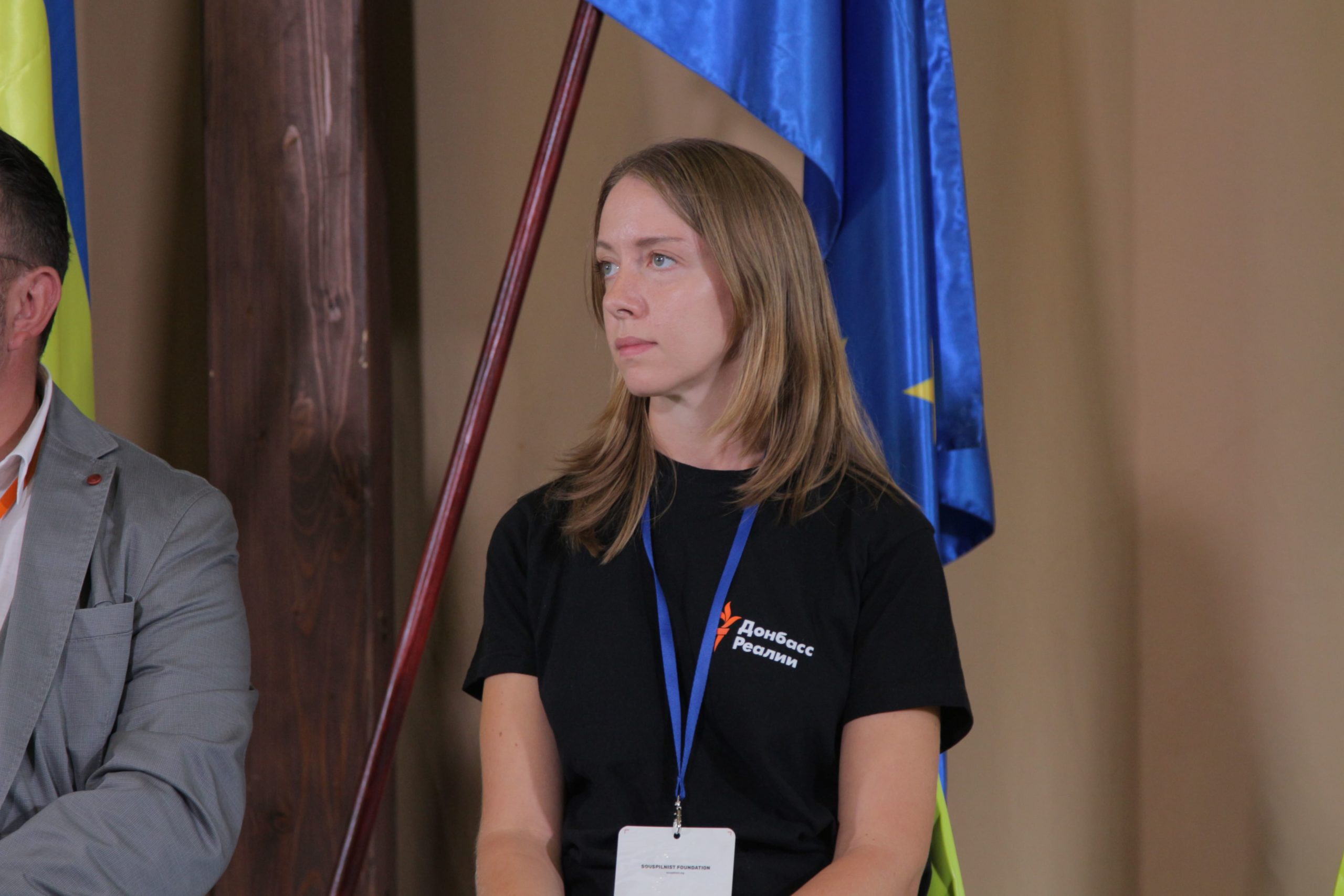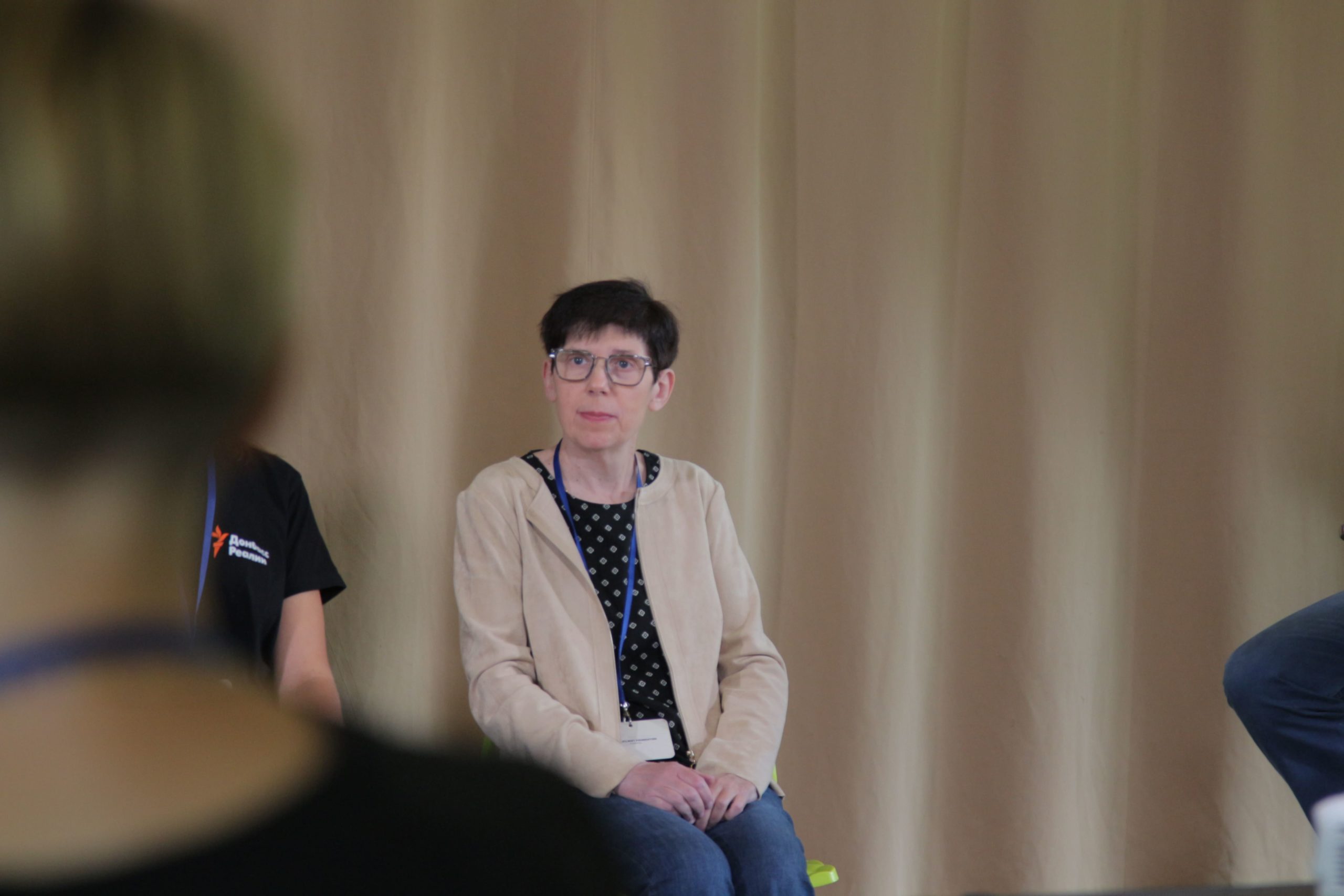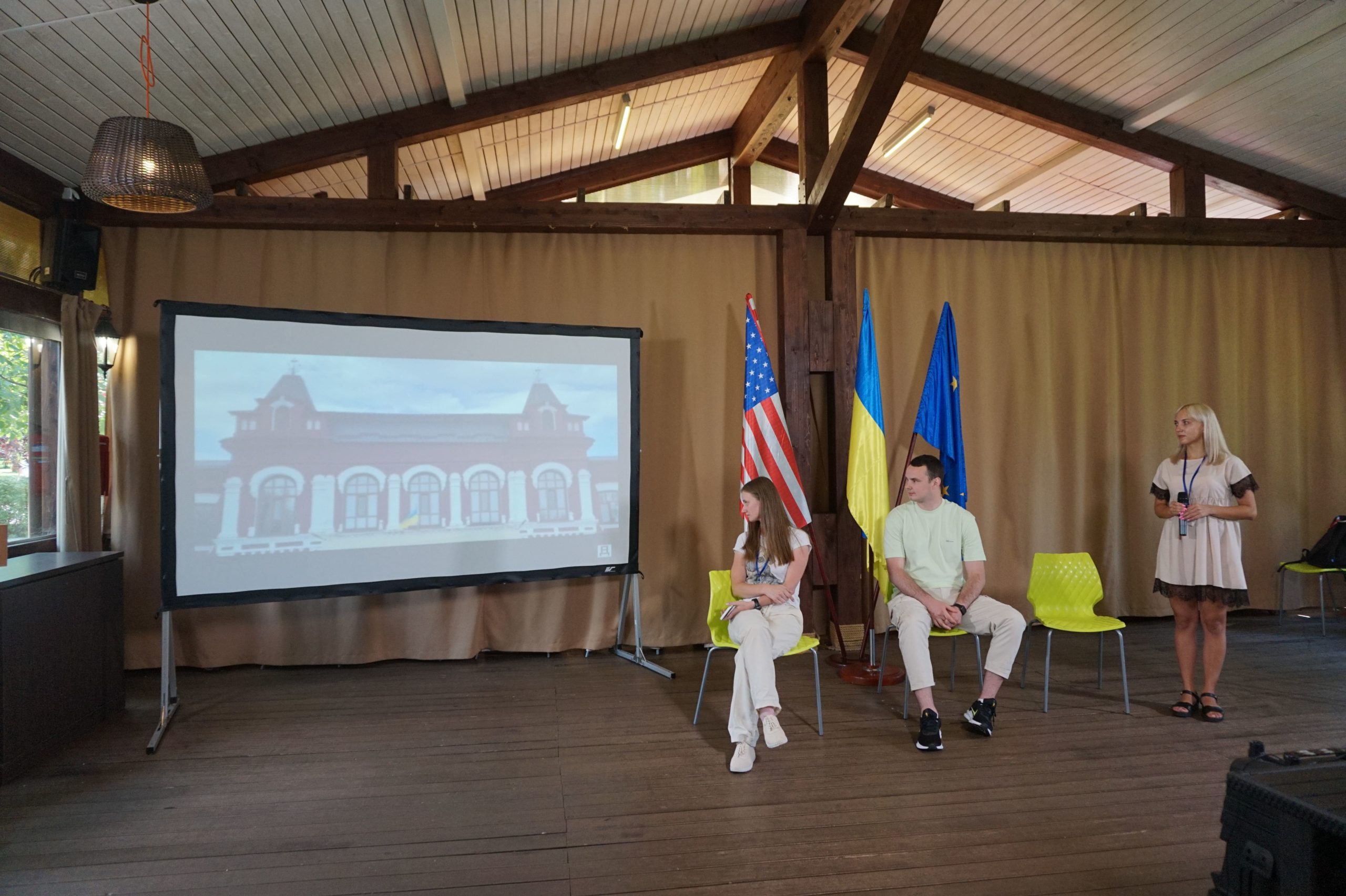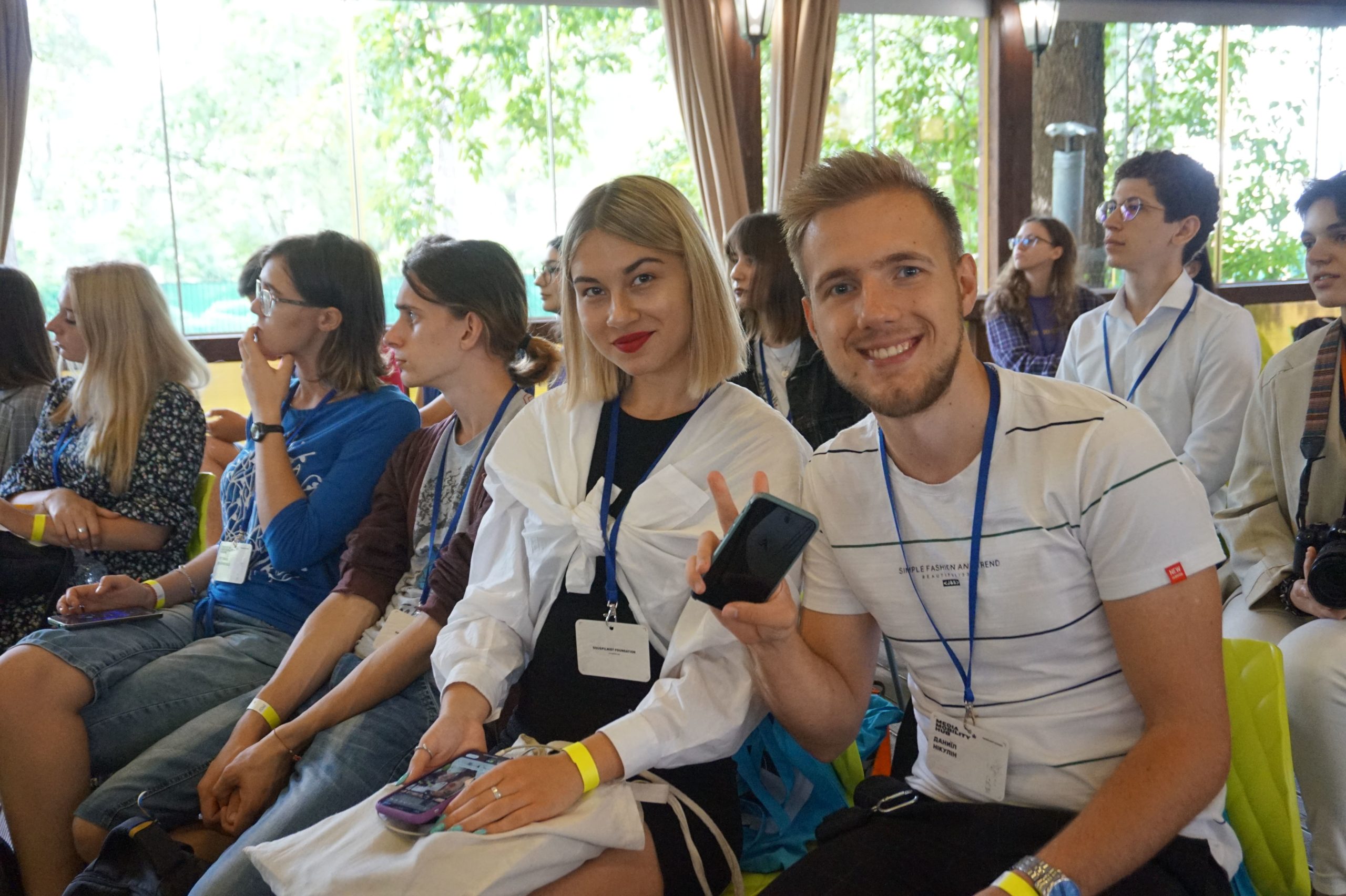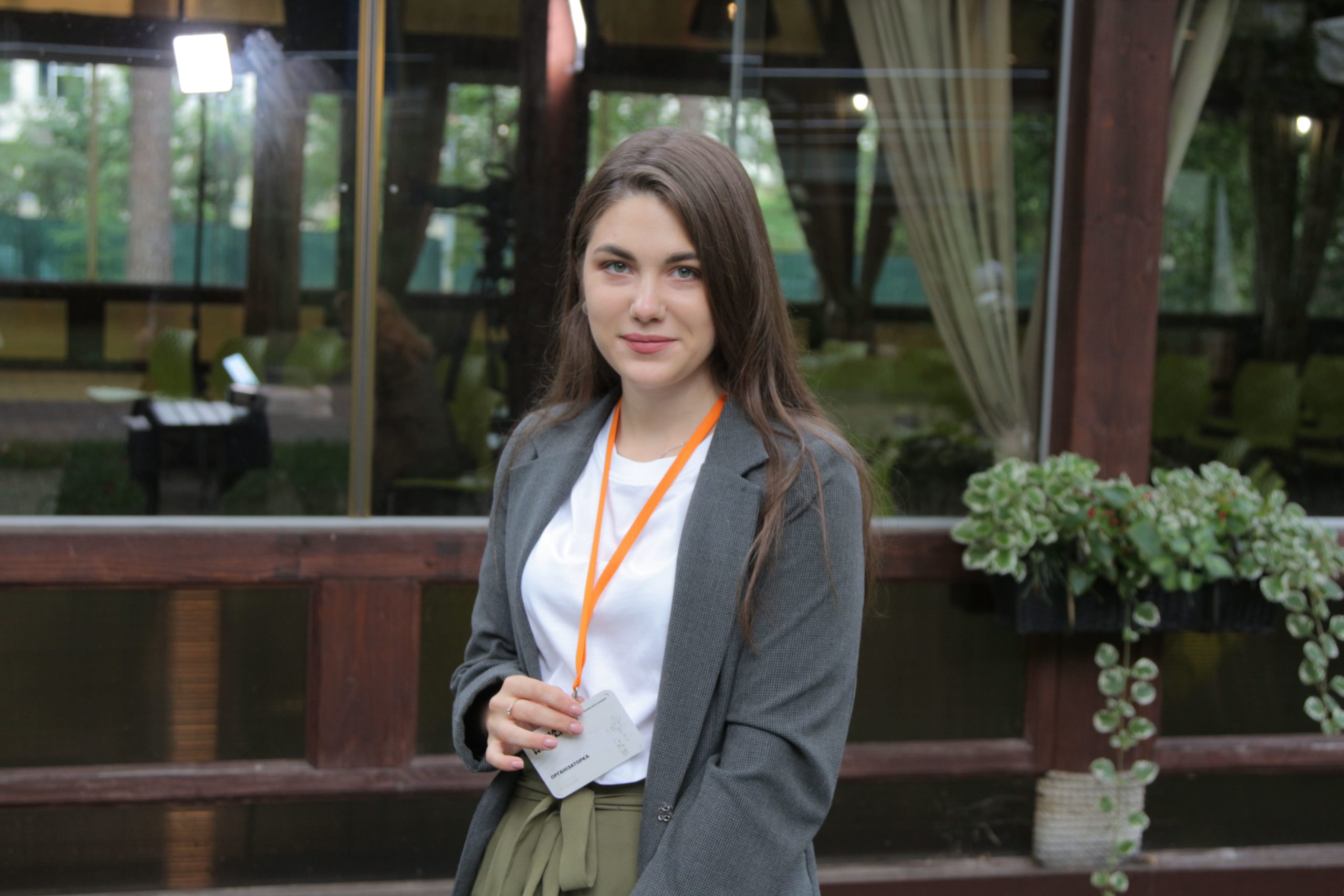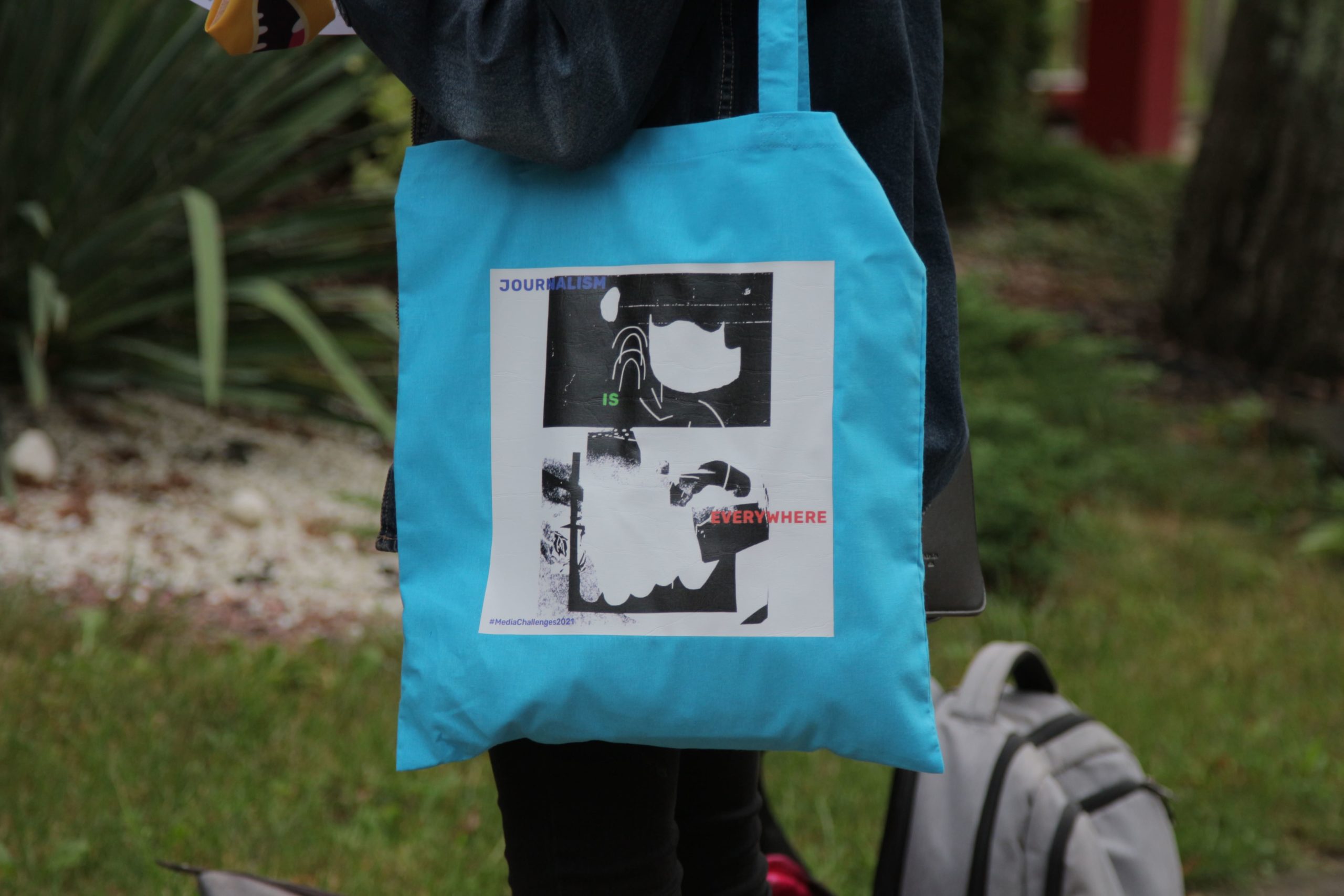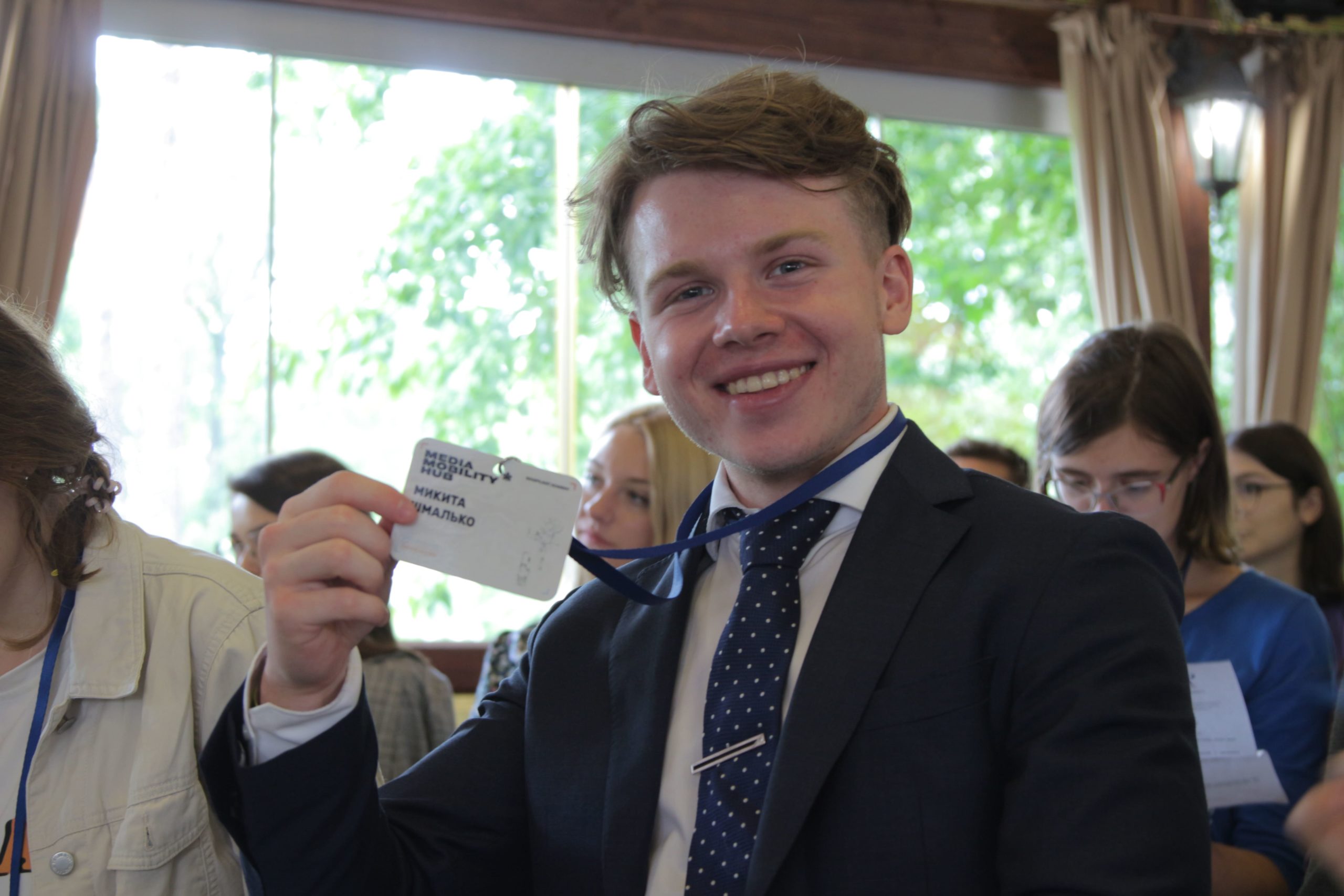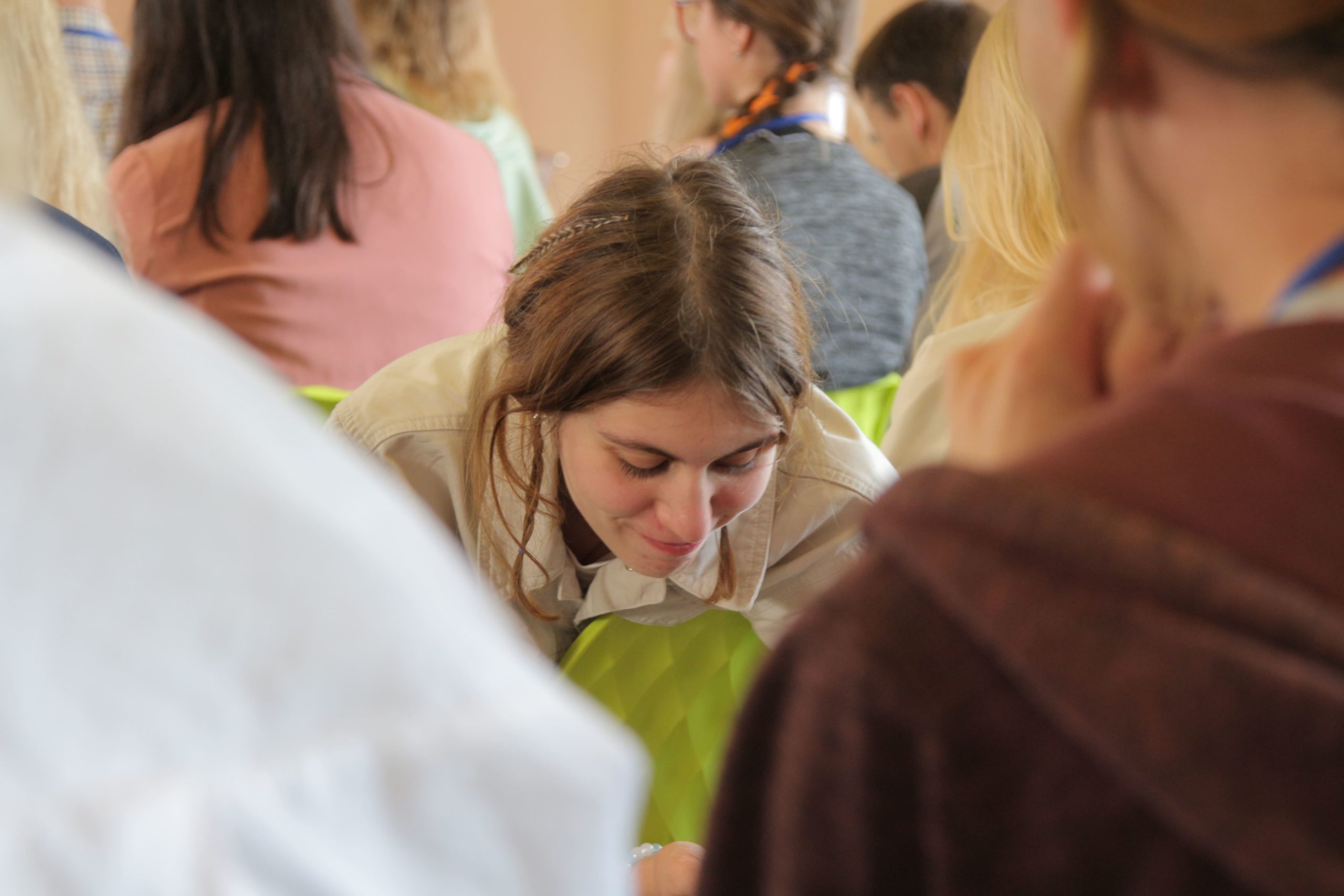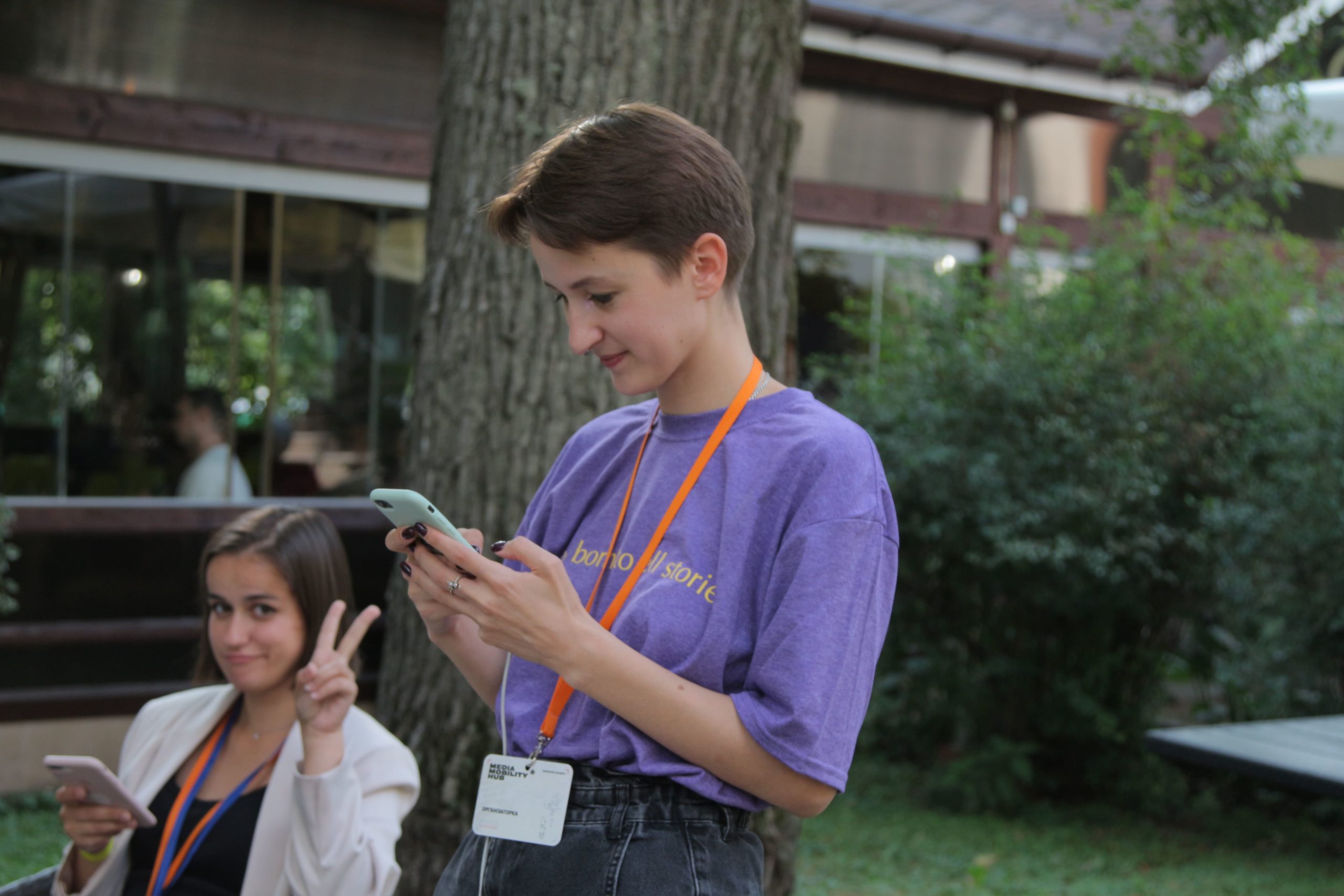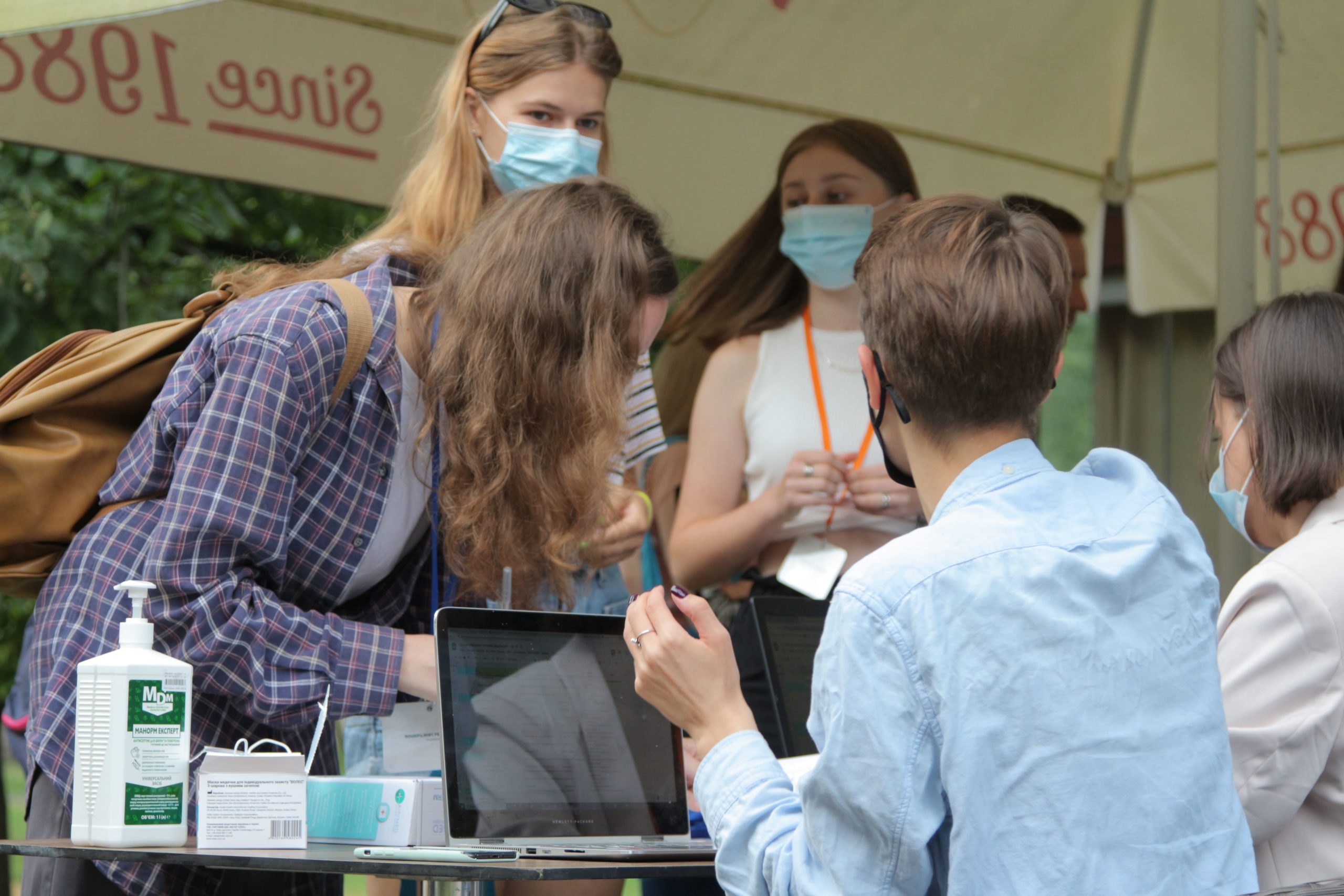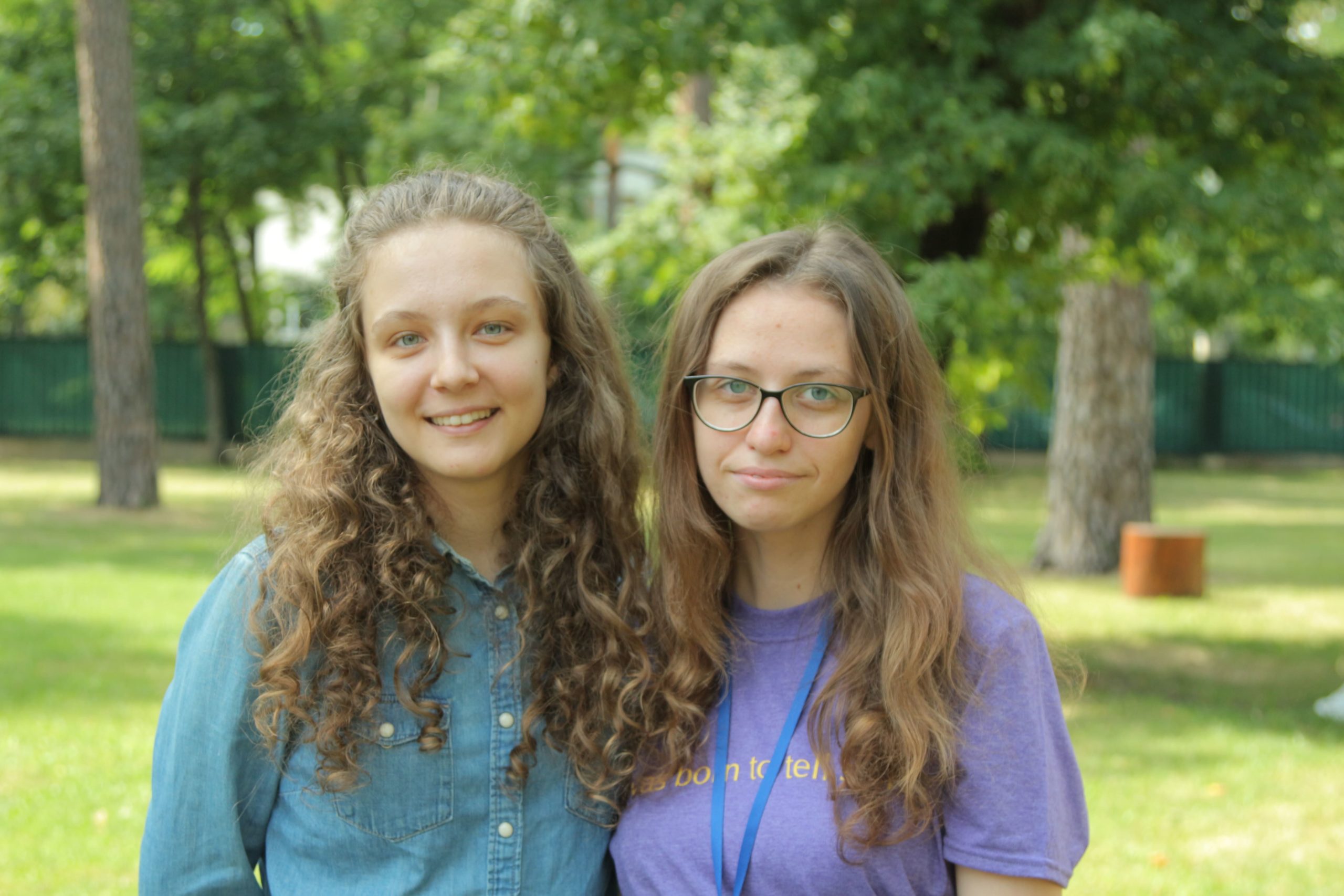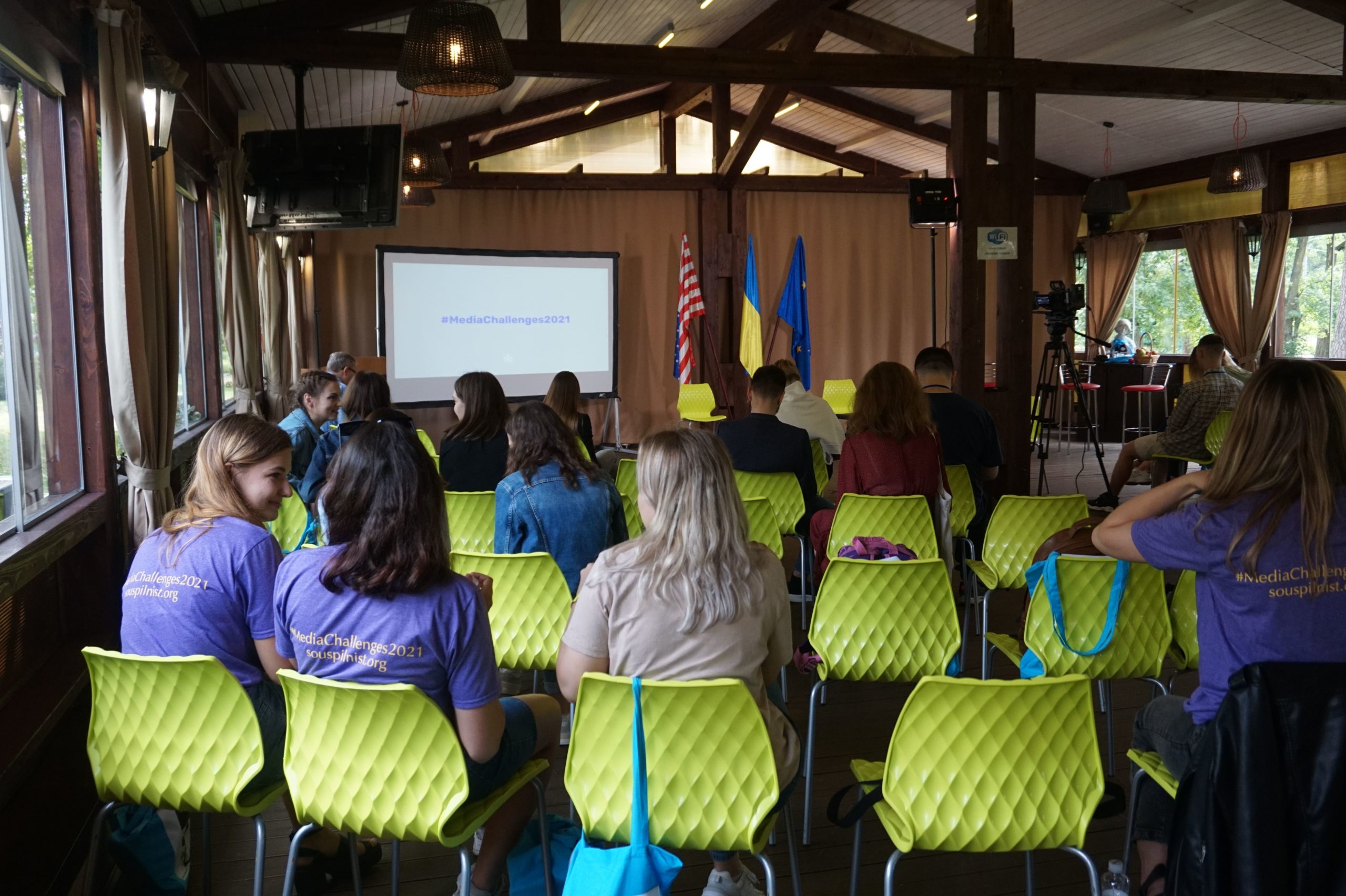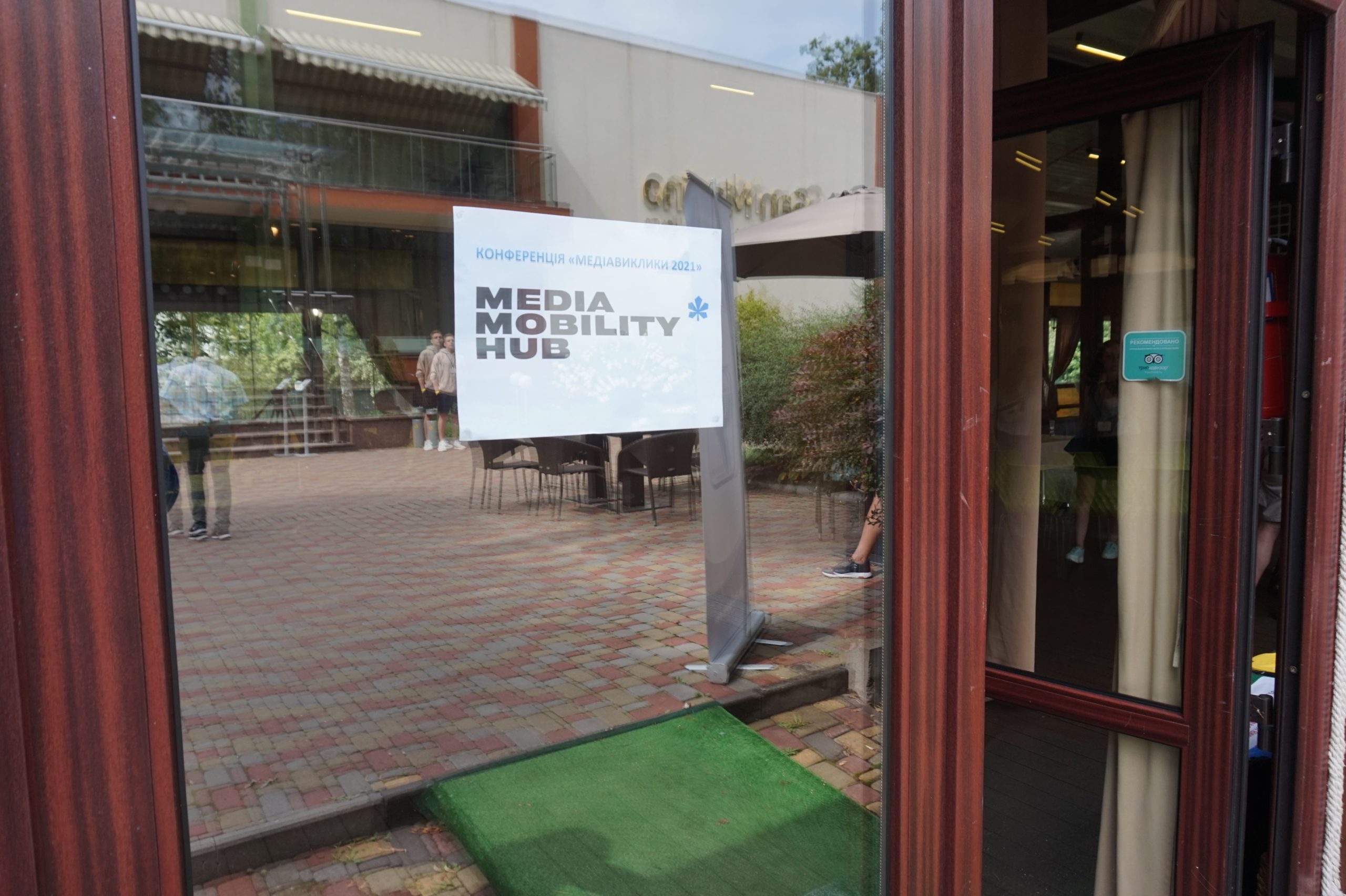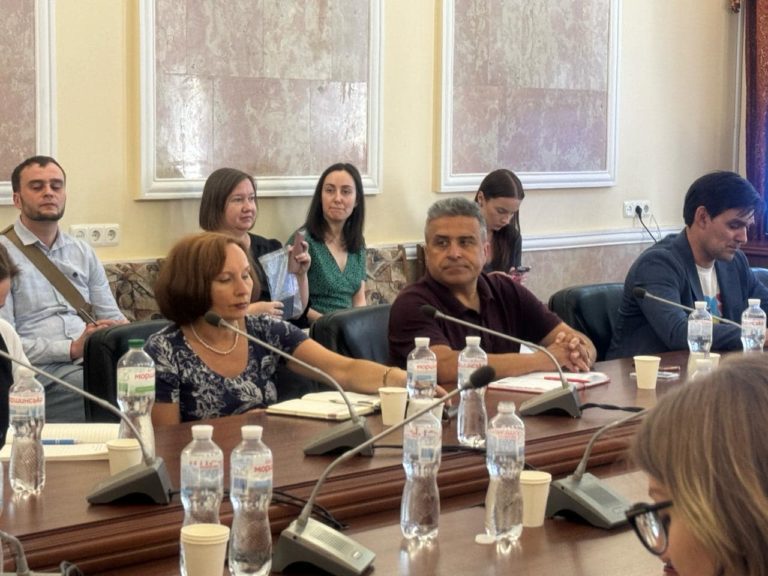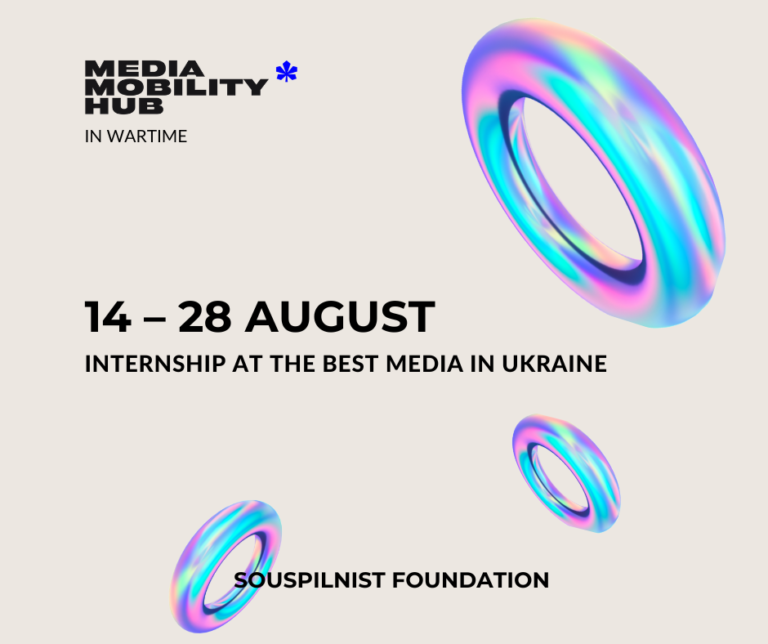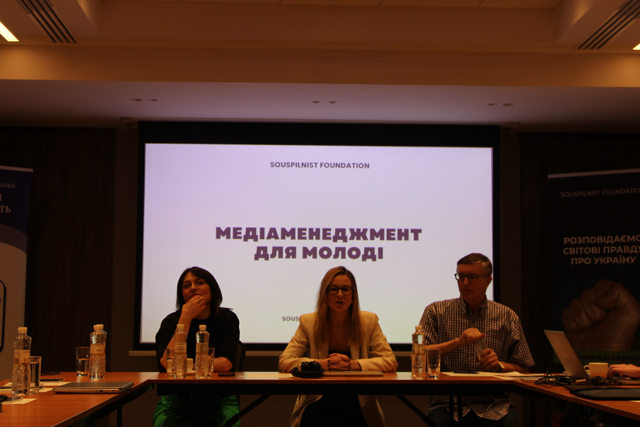On August 19-20, the annual meeting of the Media Intern Association (Media Mobility Hub program graduates) and the #MediaСhallenges2021 Forum took place in Kyiv.
This year, the two-day Forum organized by Souspilnist Foundation was dedicated to the anniversary of Ukraine’s independence, with the main discussions centering around the panel ”Novel challenges/success stories/effective changes: young media community’s perspective”
The Forum gathered over 100 participants, including young journalists doing their internships at Kyiv newsrooms as part of the 20th Medi Mobility Hub session and 28 unique speakers: media experts, politicians, representatives of international organizations. The two days comprised 8 discussion panels, two special awards, and the participants presenting their own projects.
“We believe that it is the young journalists and young generation that will foster critical thinking in the Ukrainian media audience and revitalize the media environment.
You and us, we all have noticed that Covid-19 has brought changes to the entire world, including the media. Media companies lost their advertising income and started to receive less money. Today, when we’re talking about long-term existence, media outlets are increasingly thinking about how to build their relationships with the audience and encourage the latter to pay for content. That brings the question of trust. And who do people trust: respectable brands, specific individuals or journalists? Another question is what do we think of as true media?” These are the words said at the beginning of the Forum by Oksana Maidan, Deputy Head of the Media Program in Ukraine.
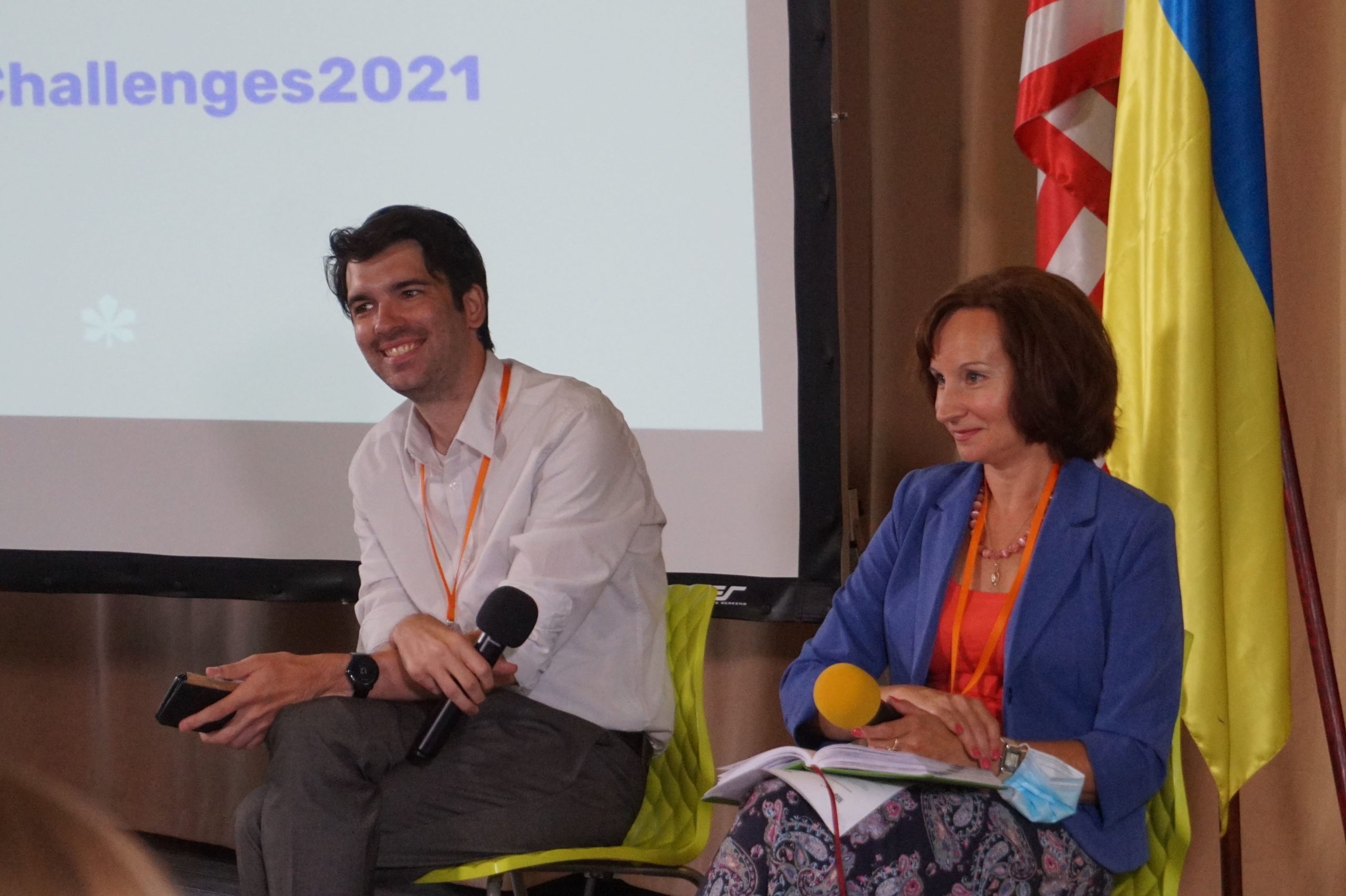
These and other issues were discussed during the panel discussions. The discussions were moderated by Taras Petriv, president of Souspilnist Foundation, Dmytro Tuzov, NV Radio host, Oksana Dumska, the Utro (“morning”) program host at the Current Time TV channel (a joint project of Radio Liberty and Voice of America).
Imposed irrealities: Disinformation vs. Journalism (critical thinking, combating aggressive propaganda, countering manipulative naming)
Every day, journalists process and receive a huge amount of information, but not all of it is true. Adrian Karmazyn, chief of the Ukrainian Service of the Voice of America (2005-2015), Valeriia Kovtun, manager of the National Media Literacy Program, and Dmytro Zolotukhin, an expert on information warfare at the Institute of Post-Information Society, spoke about how to prevent the spread of misinformation, develop critical thinking, and encourage audiences to consume quality content.
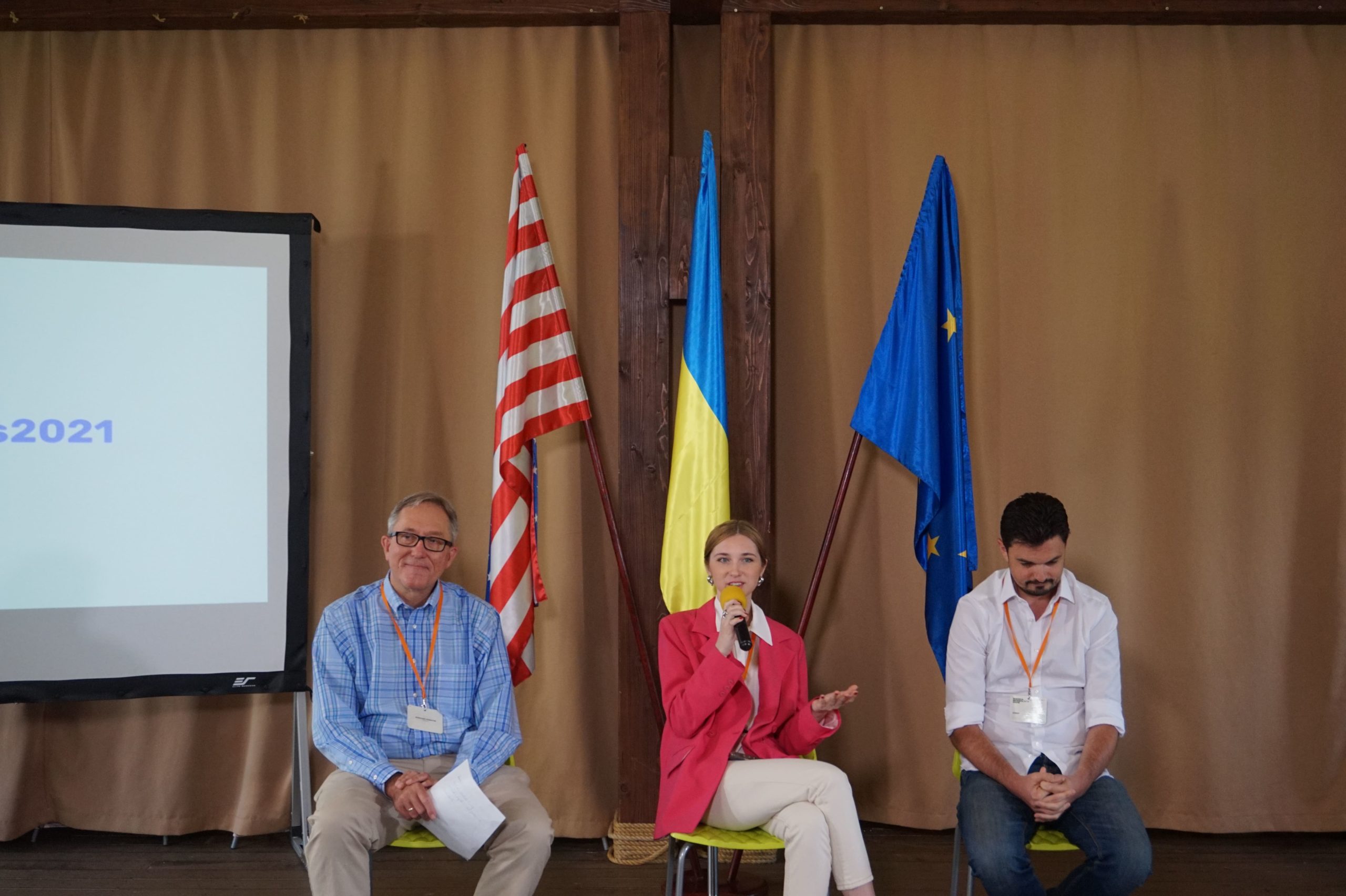
The main idea is that media literacy is the ability to take responsibility for the content disseminated by journalists, develop critical thinking and be aware of the impact of information on society’s future. Society’s lower trust in the media translates to lower levels of media literacy, so it is extremely important to develop in this direction to properly combat propaganda.
“It’s not effective to counter fake news when false information is first repeated and then debunked. Here, memory comes into play, and the next time one hears the same information, but without debunking, it’s much more likely to be accepted as true,” said Valeriia Kovtun.
“I believe that everyone should do their job. The state is an entity having a propaganda function in its structure, it can’t be escaped. Personally, I believe that journalists shouldn’t fight with anyone because it’s not their job. Journalists’ duty is to disseminate reliable information,” added Dmytro Zolotukhin.
Quality communication with the audience, which is part of developing media literacy helps all parties – the media, audiences, and society at large.
“Speaking of the American experience, it’s true that Donald Trump’s presidency made American media rethink the role of journalism. It’s obvious that journalists are involved with the development of democracy, and it’s we who shape society helping people understand what’s important and what’s less important. Many journalists have gone from supporting democracy to opposing it. And our duty, both as citizens and journalists, is to support the media we trust. For instance, the New York Times managed to maintain its readership and raise subscription fees,” said Adrian Karmazyn.
Crimean media platform. How to build information bridges.
The Crimean question is acute in Ukrainian society. It is therefore important to cover this topic as comprehensively and thoughtfully as possible, conveying to the audience the stories that keep the Ukrainian Crimea in focus.
Crimea was covered and spoken about at the Forum by Natalia Humeniuk, head of Public Interest Journalism Lab and Alim Aliyev, deputy director at the Ukrainian Institute, a Crimean Tatar. They spoke about the Crimean Platform summit and how to write stories from Crimea.
The Crimean Platform is the country’s diplomatic initiative whose main goal is to popularize the idea “Crimea is Ukraine” in society, conduct negotiations with other countries and approve plans to de-occupy the peninsula.
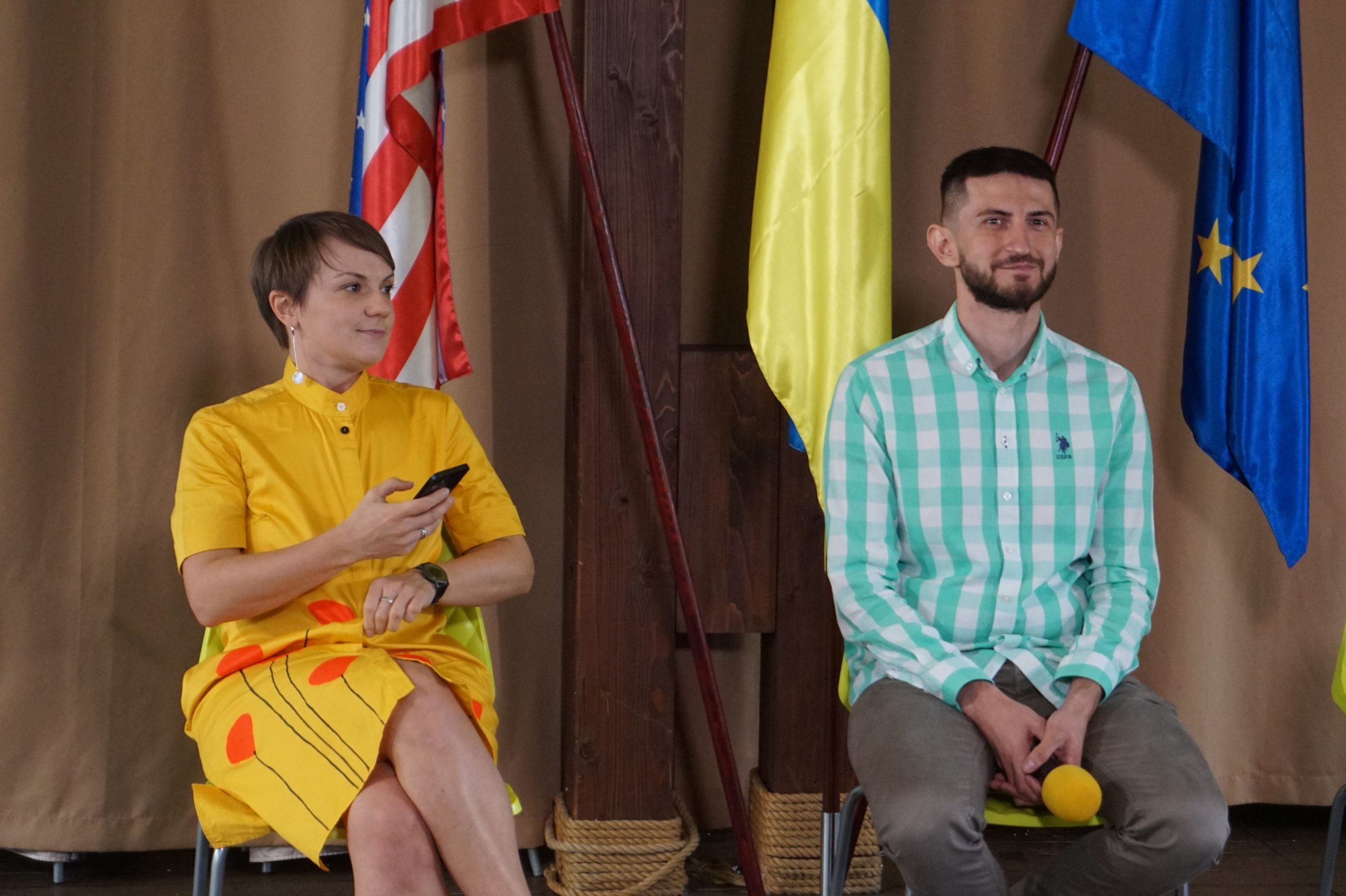
“All these messages and narratives about Crimea can be packaged up to say: “Guys, Crimea is not only our pain, but also our common cause”. So we’re trying to talk about Crimea through cross-sectionalism – take human rights, culture, and the media.” “The Crimean Platform helps subjectivize Ukraine at the international level. Personal stories, too, are extremely important if we talk about the occupied territories. No matter how much politicians and public figures talk, but the voice of those living there will be the most important,” noted Alim Aliyev.
Nataliia Humeniuk said that Public Interest Journalism Lab aims to ensure that people do not stay in their “bubbles” as regards the important issues. Therefore, the idea arose to give people involved with Crimea an opportunity to join forces. Together with the NV newsroom, we created the publication “How to Return the Crimea?” that contains material exclusively authored by Crimeans from all media outlets (from Ukrayinska Pravda to Krym.Realii).
“From the point of view of journalism, it’s a truly unique experience, when people have the opportunity to tell about Crimea through a platform that enables us to strengthen each other’s voices. There’s probably some synergy in this. Crimeans are many, they’re able and capable of asking questions and make decisions, and now imagine what can happen if we also consolidate with them. So this moment of singling out a positive minority shows that look, even they are enough to carry on reporting on this topic and show what we can do if we join in,” said Nataliia Humeniuk.
Profession on the march: tasks for the media in a time of transformation.
In a time of transformation, during the pandemic, and with the emergence of new social networks, new challenges, crises, including of trust, and the rapid development of technology, it is important for media workers to understand new tasks, find new ways of conveying information, and stay true to principles.
This was discussed during the panel discussion by Andriy Kulykov, chairman of the Board at Hromaske Radio, Nataliia Lyhachova, editor-in-chief at Detector Media, Mykyta Poturayev, head of the Committee on Humanitarian and Information Policy of the Verkhovna Rada of Ukraine, and Tetiana Yakubovych, journalist and editor-in-chief at the Radio Liberty’s Donbas.Realii project.
“Honest journalists have long been working like robots from Isaac Azimov’s novels and short stories. This man invented the three laws of robotics. The first law is that a robot may not injure a human being. The second law is that a robot cannot obey orders by a human that injure another human being. And thirdly: a robot must protect its safe existence as long as it doesn’t conflict with the first and second laws. Then, of course, these laws were supplemented by another rule, namely that a robot can’t harm humanity. And that’s the rule by which we all work, and we’ll continue to adhere to it. Secure and convenient relationships, when there’re people out there with whom you can pursue a common cause, from which your hromada or community can benefit, that’s a safe society. Work can be risky, society goes through crises but that’s how it is,” said Andriy Kulykov.
“Of course, a lot is changing in the world, and social networks look like a collapse of civilization, but of course I think that humanity has experienced bigger tragedies, and it’ll survive this one, it’ll socialize. It’s important that people come back to the media, understanding that they’ll find quality information there. However, there are problems with that now. So, the media’s task today is to restore authority,” said Mykyta Poturayev.
It should also be noted that one of the main challenges for Ukrainian media workers is to work under conditions of war in the country.
“There are challenges for the media due to global trends, and then there are things that are reinforced in us, precisely because we’re working in a situation of war,” said Tetiana Yakubovych.
Therefore, the main solution is to get back the trust of audiences.
“My message is that in a time of transformation, it’s necessary to restore trust not only in the media themselves, but also the internal trust within the corporation, that is, respect each other and respect the right to criticize each other. Or, on the other hand, support when you have to point out to someone that they’re manipulating,” said Nataliia Lyhachova.
The formation of the public broadcasting system in Ukraine. What do we have in stock for the new season? Achievements, challenges and threats.
Public broadcasting in Ukraine was established in 2014. One of the main challenges for UA:PBC in 2021 became conducting a transparent competition to elect UA:PBC’s chairman of the Board. In late April, the Supervisory Board elected the new leader – Mykola Chernotsytskyi, formerly a UA:PBC board member; as of May 14, he replaced Zurab Alasania who headed it in 2014-2021.
Also, the re-election of most members of the first composition of the Supervisory Board of UA:PBC took place this year.
The positive changes achieved over these years and further challenges and threats were discussed by Svitlana Ostapa, board member at UA:PBC, Mykola Chernotytskyi, chairman of the board at UA:PBC, Darya Kariakina, director general at the OUTLOOK project, and Vadym Miskyi, secretary of the supervisory board of UA:PBC.
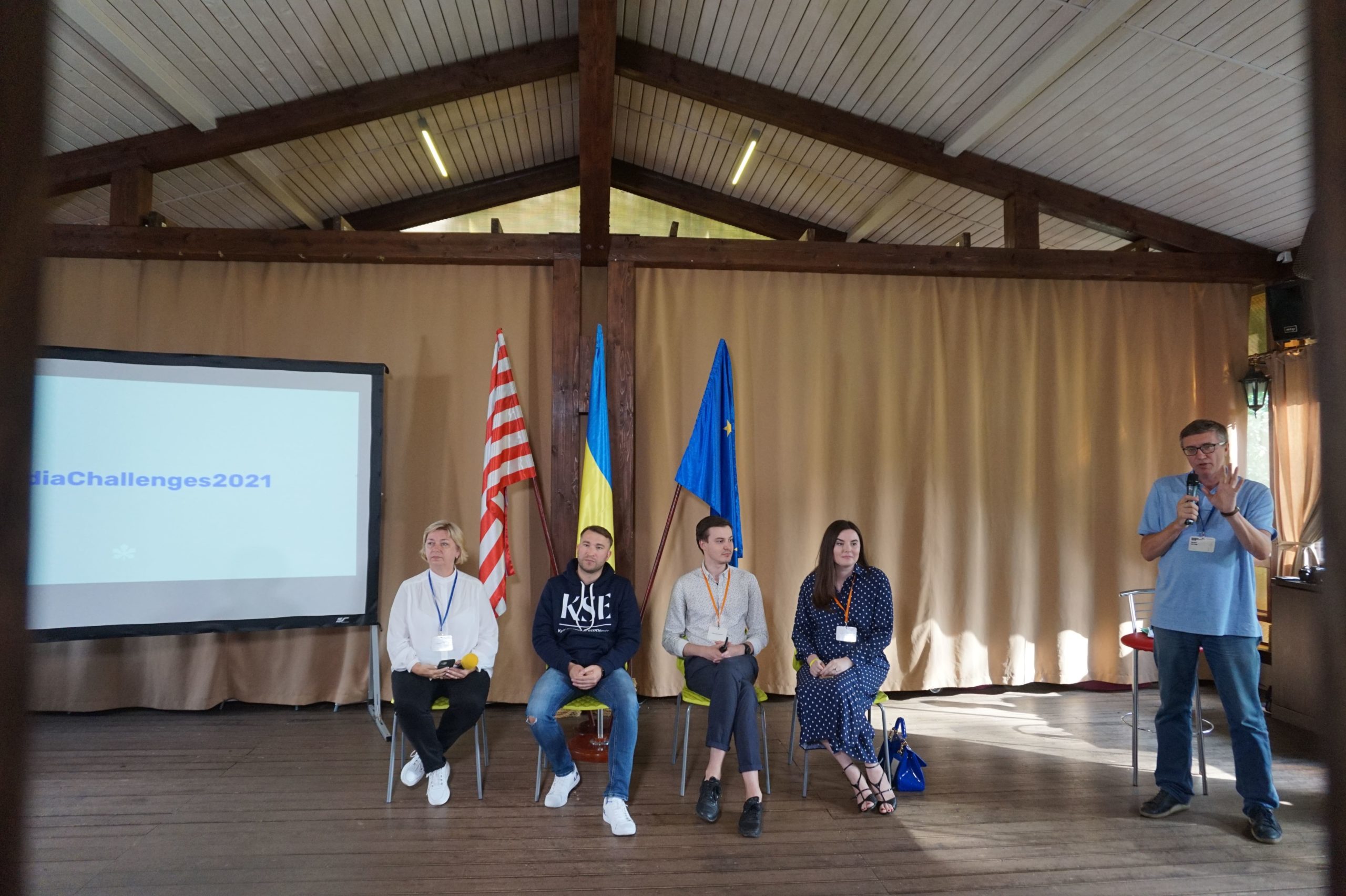
“We’re facing lots of challenges and obstacles that we constantly have to overcome. Specifically, recently we’ve heard proposals to amend the Law on Public Broadcasting, by which they want to change the formula of creating the Supervisory Board of UA:PBC, for it to be appointed by the government. This could undermine UA:PBC reform and call into question its independence,” said Svitlana Ostapa said.
Since insufficient funding is one of the forms of trying to put pressure on UA:PBC, a new funding model has been developed that includes the creation of a special fund in the state budget that will be replenished by revenues from the tax on fees for radio frequency resources, said Vadym Miskyi.
New directions of work of UA:PBC were also discussed during the panel discussion. Including making documentaries and content for children.
“We’re launching children’s content for the first time that will be distributed on the most popular platforms. The budget is up to 20 million hryvnias, and we’d like to increase production and become a full-fledged player in the production market,” said Mykola Chernotytskyi.
“Also, within the framework of the Public Broadcaster, an institution has already been created to help national minorities. During the audit, we realized that it was necessary to fill in the gap between the representatives of national minorities and ethnic Ukrainians, and we decided to develop captions and show the lives of national minorities represented in the territory. Overall, we have the opportunity to pay attention to the group of people usually not mentioned on private TV channels,” said Darya Kariakina.
Successful media outlets / Communications practices / Self-regulation institutions.
Different media projects have their own system of work, but it is still important to adhere to journalistic standards and make sure that audiences receive quality information. What the successful media are, how they work and how self-regulation institutions can encourage the development of the media market was discussed during the platform by Antonina Cherevko, chairperson of the Independent Media Council, Tetiana Kozyrieva, a Pulitzer finalist in 2021 of FinCEN project, and Yaroslav Druziuk, deputy director at The Village Ukraine and editor-in-chief at Barout and Blackfield.
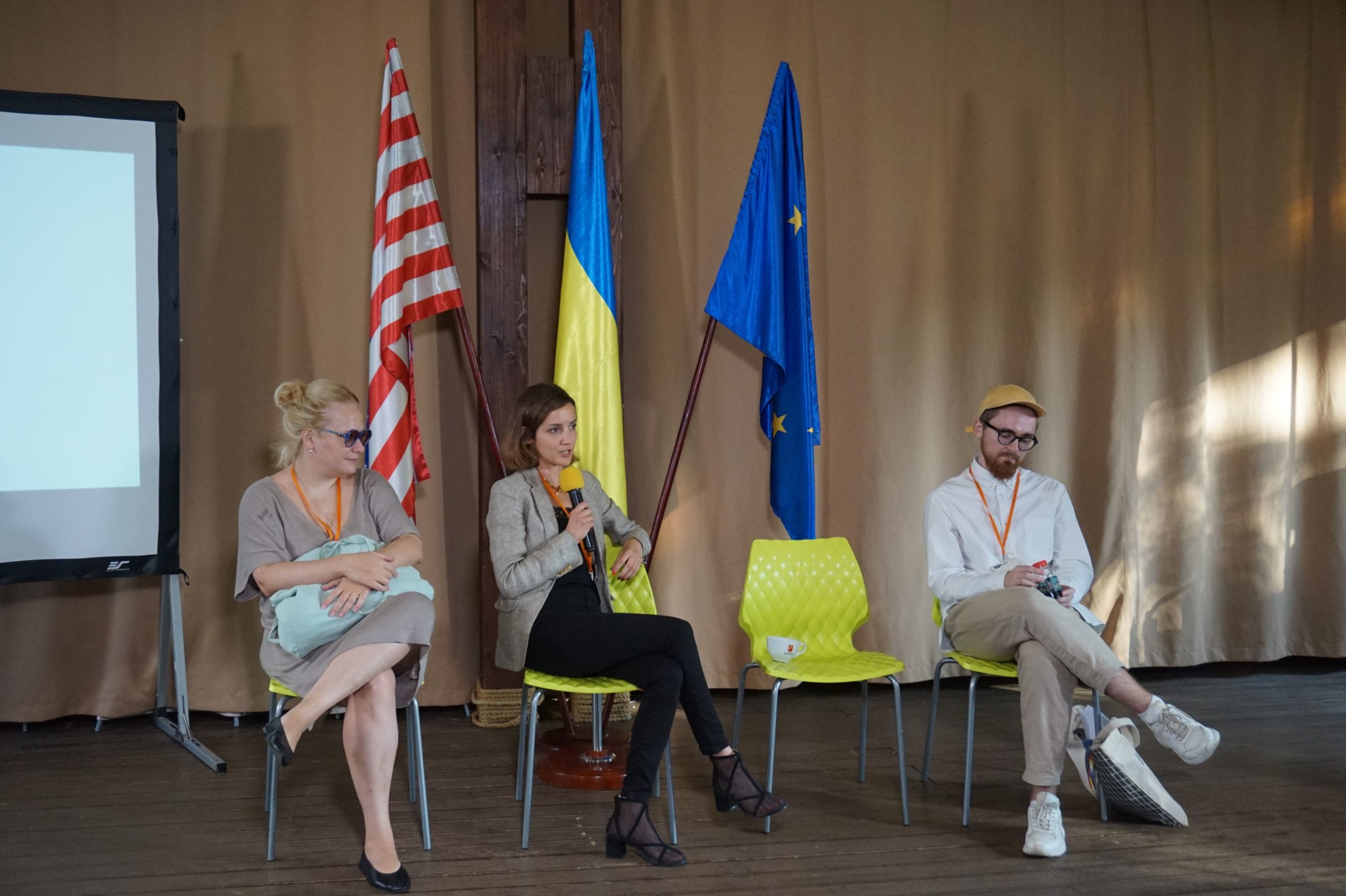
Specifically, it was noted that building a media business is an extremely unpredictable thing. The main problem is the lack of funds, and it is one thing when we are talking about large, dependent corporations financed by individuals, and quite another when we are talking about small, independent media – is it possible for them to be profitable?
“There’s the culture of trusting the media but the paramount issue is that media outlets compete with one another, which affects the quality of content and the number of views,” noted Tetiana Kozyrieva.
It is often impossible to make early predictions about the success of a particular media outlet as it will be difficult to consider all the details. But successful cases do exist, with FinCEN being one of them.
Yaroslav Druziuk also spoke about the projects that his team and he are working on together and that are not loss-making and even somewhat profitable. He added:
“Today, I wanted to say that being a media outlet in Ukraine is hard, but we need to keep on moving, and I feel that we’re moving in small steps in the right direction. Meetings like today’s, through communication with our colleagues, help us understand this.
The work of the Independent Media Council in the area of developing independent media is important.
“The Media Council tries to give people complex answers to complex questions, which almost no one does nowadays. By the way, another problem of our time is simple answers to complex questions, but it doesn’t work like that because they require a long explanation. And conflict situations, they’re also not easy, and very rarely black and white,” said Antonina Cherevko.”
Challenges for the profession: the perspective of the experienced. What is going to happen to journalism and journalists in the future?
Digitization is one of the most widely used words in today’s world. However, how will it affect the media sphere, what challenges are we to expect and how are we going to work?
This was discussed by Iryna Slavinska, producer at Culture Radio and Tetiana Kyselchuk, a board member at UA:PBC responsible for the digital platform and information broadcasting.
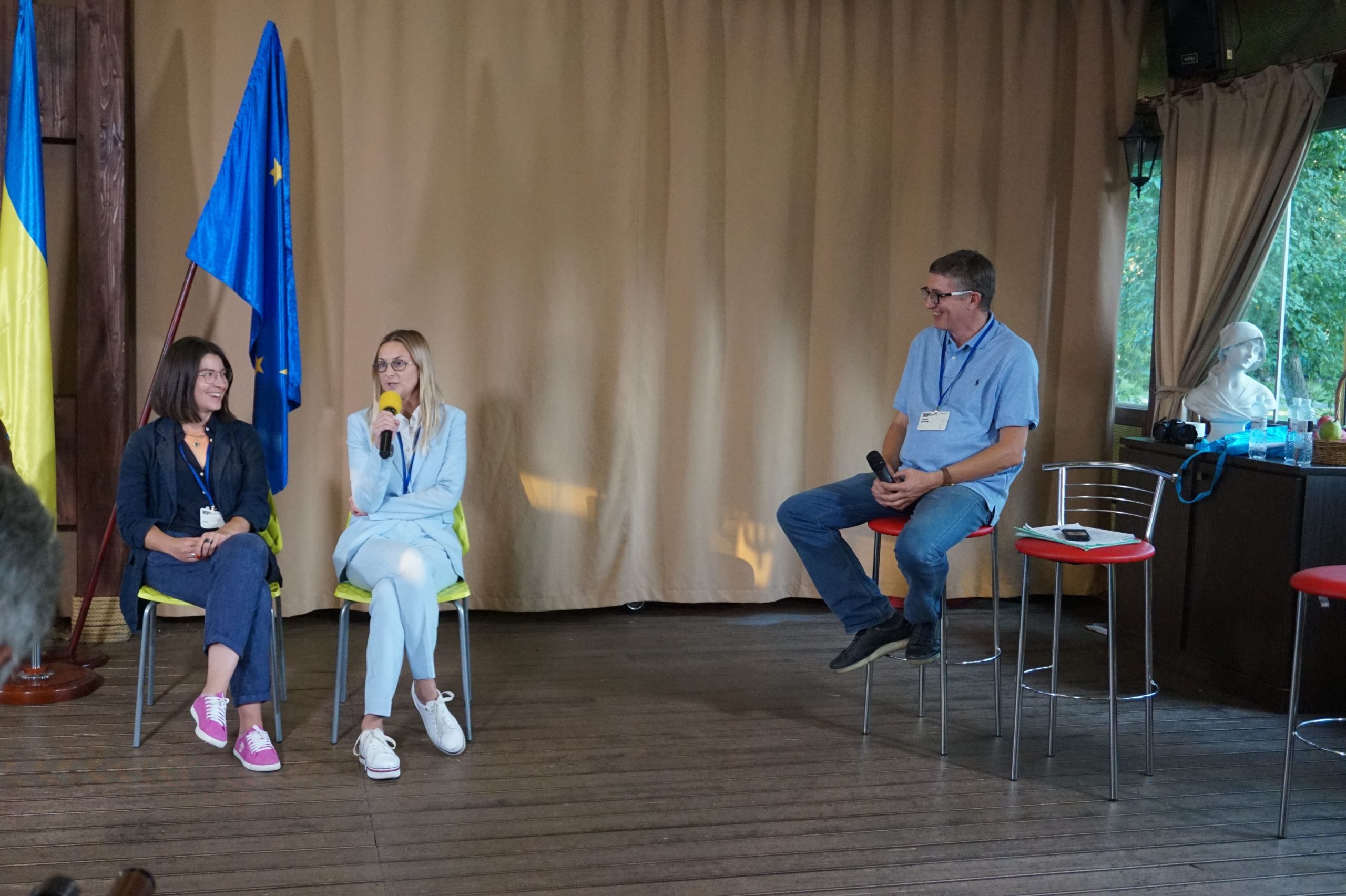
Digitization changes the media but another important issue arises in the process, namely that of working in a team.
“In the future, we’ll all face the challenge of working together, the challenge of implementing tasks and – where you can’t implement them at the first try – find strength and work with the team, find a person who’ll tell you something and help you understand what’s yours and what‘s not,” Iryna Slavinska noted.
“If you don’t think like me, it doesn’t mean that we can’t work together. To the contrary, you need to learn to realize that all people are different, and the course of their thought is radically different,” added Tetiana Kyselchuk.
Success stories and newsroom fails – a no-holds-barred discussion of failures and successful solutions in journalistic work. Project.
Three Media Mobility Hub graduates spoke about their success stories and work failures. These were Vasyl Arovych, UGC producer at UA:PBC, Anastasiia Shybiko, director at Free Radio (Bakhmut), and Viktoriia Pylypenko of the Nomads at Home project about tourist Luhansk and Donetsk regions.
Should one seize all the “windows of opportunity”? How not to burn out and be successful?
The last discussion platform was dedicated to the issue of burnout in journalism. According to research, one in four persons in the world experiences mental health problems during their lifetime. And journalism is one of the professions that heightens the risk of psychological difficulties.
Yevheniy Pylypchuk, a journalist at Interfax Ukraine, Viktoriia Kovtsun, reporter at 1+1, and Liudmyla Korniyevych, special correspondent at ICTV, shared their personal experiences.
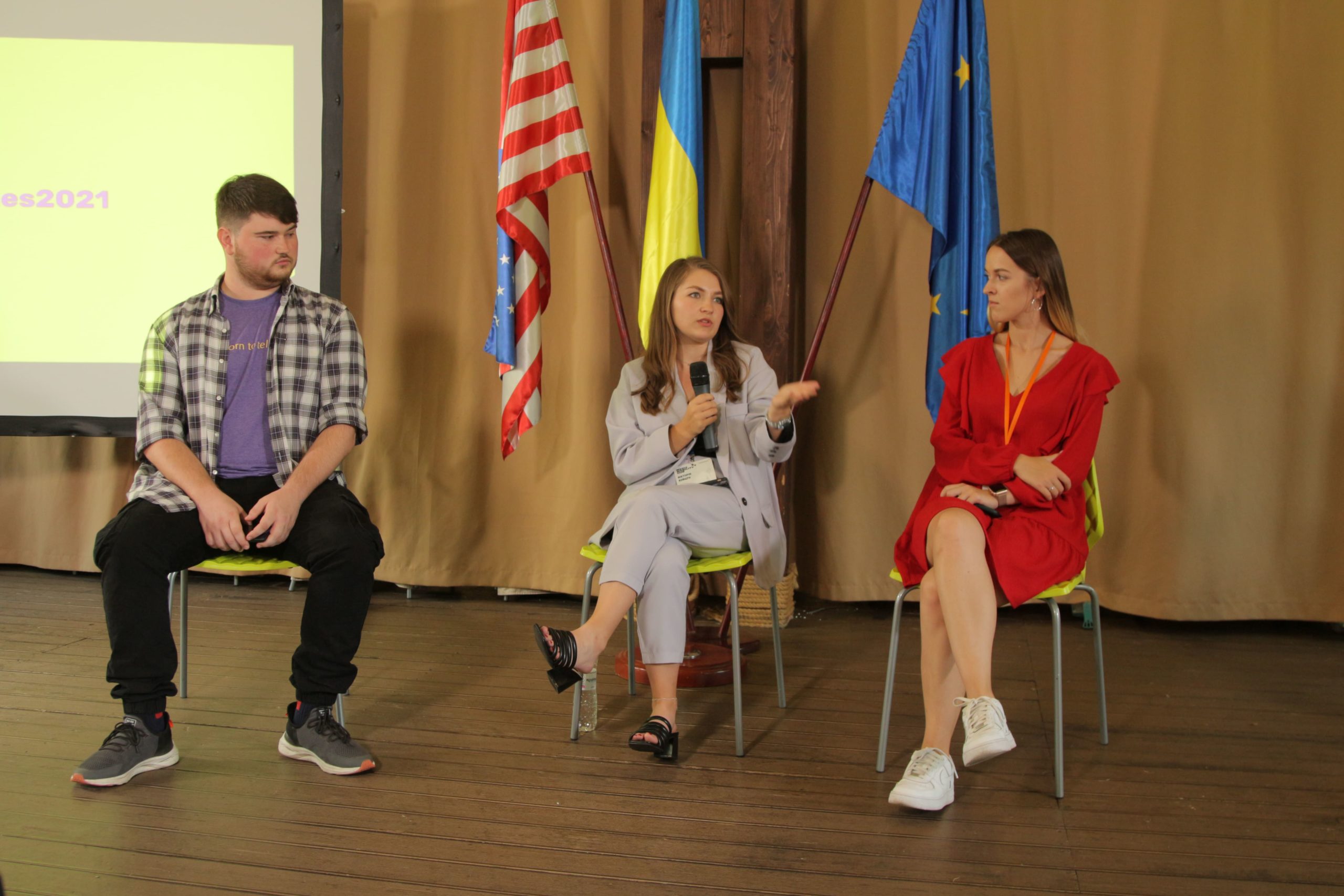
Another important thing in journalism is to seek opportunities even when it seems that nothing will work.
“If you really want to work in journalism, then knock on every door until it’s opened for you. Do you know how many times I heard that I’d never be a journalist, or whether I heard how my voice sounded at all or saw my face at all? So if you really want to, keep knocking until it’s opened for you,” said Viktoriia Kovtsun.
Another important thing is to be able to stop. Burnout has happened to all journalists to some extent, but at the same time, it is important to listen to your desires and take a break when necessary.
“Don’t look at rest as a pause in your development, because when you rest, you still read, communicate with people and learn something new. Think of resting as a stage when you just gather energy and strength to enter some new area. Indeed, to work well, you need to have a good rest,” advised Liudmyla Kornievich.
Also, two special awards were bestowed during the MediaChallenges2021 Forum.
Yanina Sokolova, a journalist, host and public figure who received a special award for her contribution to debunking aggressive narratives stressed the following:
“You’re our future, and we often talk in newsrooms about who will succeed us. Actually, there are very few people in Ukraine who can really be called journalists, and most media outlets are privately owned. It so happens that we, journalists, have no place to work to defend our journalistic position, that is, be free. However, with the help of our viewers that take us seriously, we’re given the opportunity to be free. It’s a great freedom and honor to work in such conditions, which, unfortunately, many people can’t afford to work in. Remember that our profession means working for people, not for the owners.”
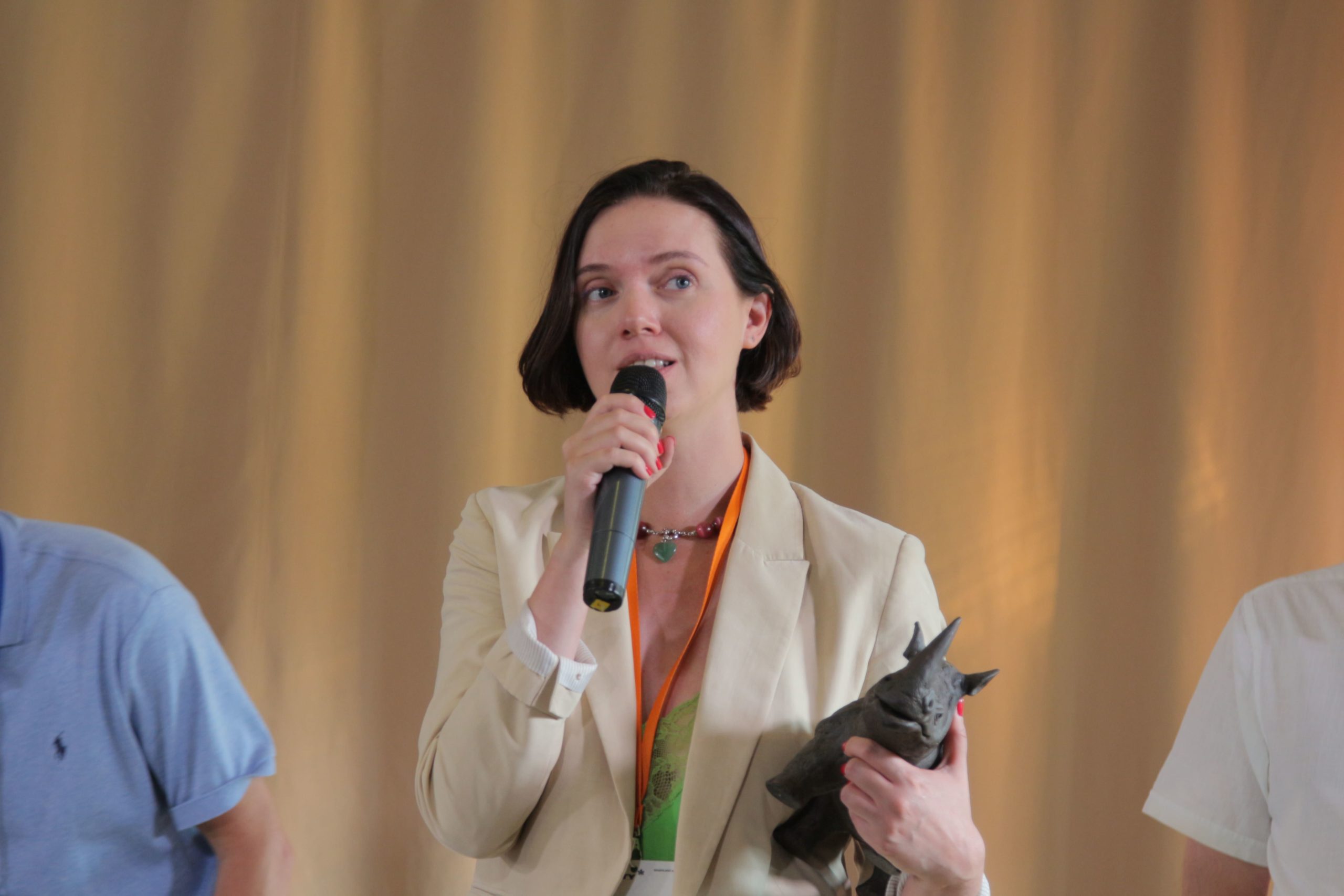
Viktor Diachenko, a Breakfast at UA:PBC program host and MMH graduate received the “Breakthrough” award for his progress in the profession.
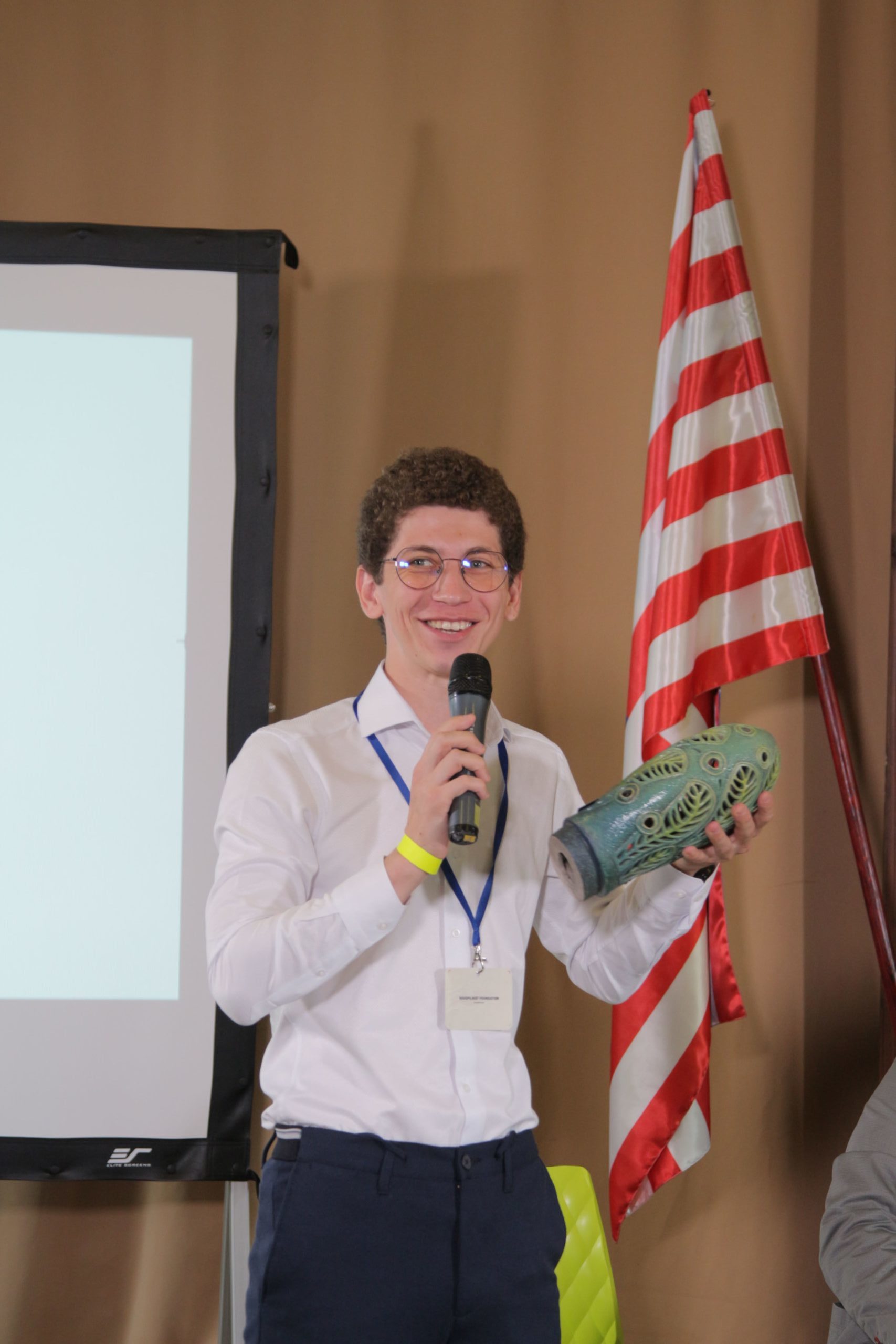
The annual meeting of the Media Intern Association (Media Mobility Hub program graduates) ended with electing the Association’s new leadership: Vasyl Arovych, UGC producer at UA:PBC, became its president, and Viktoriia Kovtsun, a reporter at 1+1″, and Anastasiia Shybiko, director of Free Radio in Donetsk region, became his deputies.
This event is made possible with the support of the USAID-funded Media Program in Ukraine, implemented by Internews, and with the help of private donors.
Information partners: beTV, Detector Media, Fotoz, the National Press Club of Ukraine.
